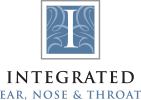SINUS HEADACHE
In Denver and Lone Tree, Colorado
Many patients visit Integrated ENT to seek treatment for a sinus headache and learn they actually have a migraine or tension headache. The confusion is common–a migraine can cause irritation of the trigeminal or fifth cranial nerve (with branches in the forehead, cheeks, and jaw). This may produce pain at the lower-end branches of the nerve, in or near the sinus cavity.
Not every headache is the consequence of sinus and nasal passage problems.
Symptoms Of Sinusitis
Pain in the sinus area does not automatically mean that you have a sinus disorder. On the other hand, sinus and nasal passages can become inflamed leading to a headache. Headache is one of the key symptoms of patients diagnosed with acute or chronic sinusitis.
In addition to a headache, sinusitis patients often complain of:
- Pain and pressure around the eyes, across the cheeks and the forehead.
- Achy feeling in the upper teeth.
- Fever and chills.
- Facial swelling.
- Nasal stuffiness.
- Yellow or green discharge.
However, it is important to note that there are some cases of headaches related to chronic sinusitis without other upper respiratory symptoms. This suggests that an examination for sinusitis be considered when treatment for a migraine or other headache disorder is unsuccessful.
Sinus Headache Treatment
Sinus headaches are associated with a swelling of the membranes lining the sinuses (spaces adjacent to the nasal passages). Pain occurs in the affected region – the result of air, pus, and mucus being trapped within the obstructed sinuses. The discomfort often occurs under the eye and in the upper teeth (disguised as a headache or toothache). Sinus headaches tend to worsen as you bend forward or lie down. The key to relieving the symptoms is to reduce sinus swelling and inflammation and facilitate mucous drainage from the sinuses.
There are several at-home steps that help prevent sinus headache or alleviate its pain. They include:
Breathe moist air. Relief for a sinus headache can be achieved by humidifying the dry air environment. This can be done by using a steam vaporizer or cool-mist humidifier, steam from a basin of hot water, or steam from a hot shower.
Alternate hot and cold compresses. Place a hot compress across your sinuses for 3 minutes, and then a cold compress for 30 seconds. Repeat this procedure three times per treatment, two to six times a day.
Nasal irrigation. Some believe that when nasal irrigation or rinse is performed, mucus, allergy creating particles, and irritants such as pollens, dust particles, pollutants, and bacteria are washed away, reducing the inflammation of the mucous membrane. Normal mucosa will fight infections and allergies better and will reduce the symptoms. Nasal irrigation helps shrink the sinus membranes and thus increases drainage. There are several over-the-counter nasal rinse products available. Consult one of our ENT doctors for directions on making a home nasal rinse or irrigation solution.
Over-the-counter medications. Some over-the-counter (OTC) drugs are highly effective in reducing sinus headache pain. The primary ingredient in most OTC pain relievers is aspirin, acetaminophen, ibuprofen, naproxen, or a combination of them. The best way to choose a pain reliever is by determining which of these ingredients works best for you.
Decongestants. Sinus pressure headaches caused by allergies are usually treated with decongestants and antihistamines. In difficult cases, nasal steroid sprays may be recommended.
If none of these preventative measures or treatments is effective, a visit to the Integrated ENT offices may be warranted. During the examination, a CT scan of the sinuses may be ordered to determine the extent of blockage caused by chronic sinusitis. If no chronic sinusitis is found, treatment might then include allergy testing and desensitization (allergy shots). Acute sinusitis is treated with antibiotics and decongestants. If antibiotics fail to relieve the chronic sinusitis and accompanying headaches, endoscopic or image-guided surgery may be the recommended treatment.
Contact Us
If you suffer from chronic sinus headaches, please call Integrated ENT at (303) 706-1616 for a full evaluation. You may also request an appointment online.







